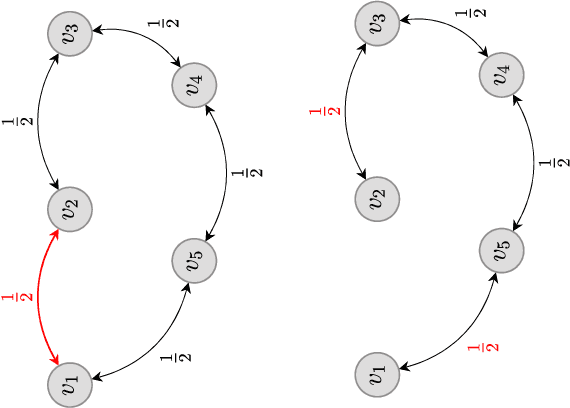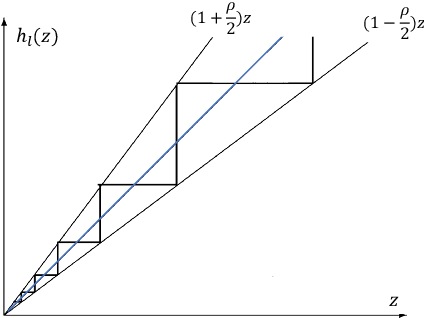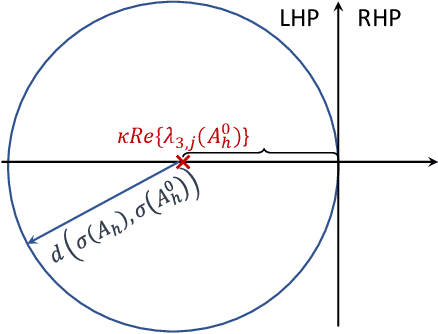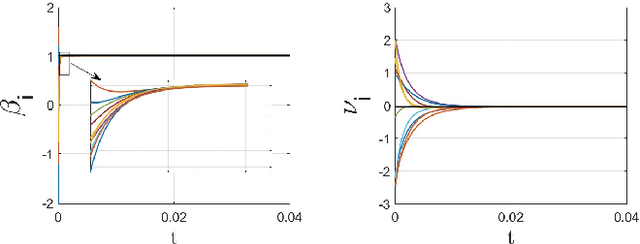Zulfiya R. Gabidullina
Momentum-based Distributed Resource Scheduling Optimization Subject to Sector-Bound Nonlinearity and Latency
Mar 08, 2025Abstract:This paper proposes an accelerated consensus-based distributed iterative algorithm for resource allocation and scheduling. The proposed gradient-tracking algorithm introduces an auxiliary variable to add momentum towards the optimal state. We prove that this solution is all-time feasible, implying that the coupling constraint always holds along the algorithm iterative procedure; therefore, the algorithm can be terminated at any time. This is in contrast to the ADMM-based solutions that meet constraint feasibility asymptotically. Further, we show that the proposed algorithm can handle possible link nonlinearity due to logarithmically-quantized data transmission (or any sign-preserving odd sector-bound nonlinear mapping). We prove convergence over uniformly-connected dynamic networks (i.e., a hybrid setup) that may occur in mobile and time-varying multi-agent networks. Further, the latency issue over the network is addressed by proposing delay-tolerant solutions. To our best knowledge, accelerated momentum-based convergence, nonlinear linking, all-time feasibility, uniform network connectivity, and handling (possible) time delays are not altogether addressed in the literature. These contributions make our solution practical in many real-world applications.
Nonlinear Perturbation-based Non-Convex Optimization over Time-Varying Networks
Aug 05, 2024



Abstract:Decentralized optimization strategies are helpful for various applications, from networked estimation to distributed machine learning. This paper studies finite-sum minimization problems described over a network of nodes and proposes a computationally efficient algorithm that solves distributed convex problems and optimally finds the solution to locally non-convex objective functions. In contrast to batch gradient optimization in some literature, our algorithm is on a single-time scale with no extra inner consensus loop. It evaluates one gradient entry per node per time. Further, the algorithm addresses link-level nonlinearity representing, for example, logarithmic quantization of the exchanged data or clipping of the exchanged data bits. Leveraging perturbation-based theory and algebraic Laplacian network analysis proves optimal convergence and dynamics stability over time-varying and switching networks. The time-varying network setup might be due to packet drops or link failures. Despite the nonlinear nature of the dynamics, we prove exact convergence in the face of odd sign-preserving sector-bound nonlinear data transmission over the links. Illustrative numerical simulations further highlight our contributions.
 Add to Chrome
Add to Chrome Add to Firefox
Add to Firefox Add to Edge
Add to Edge